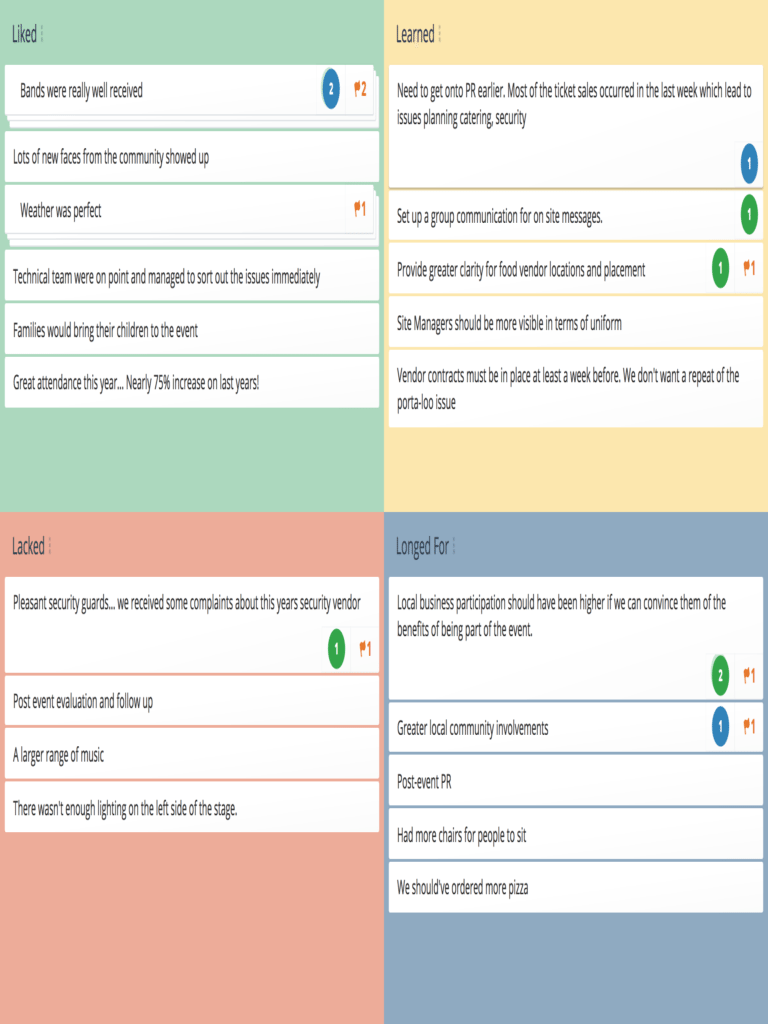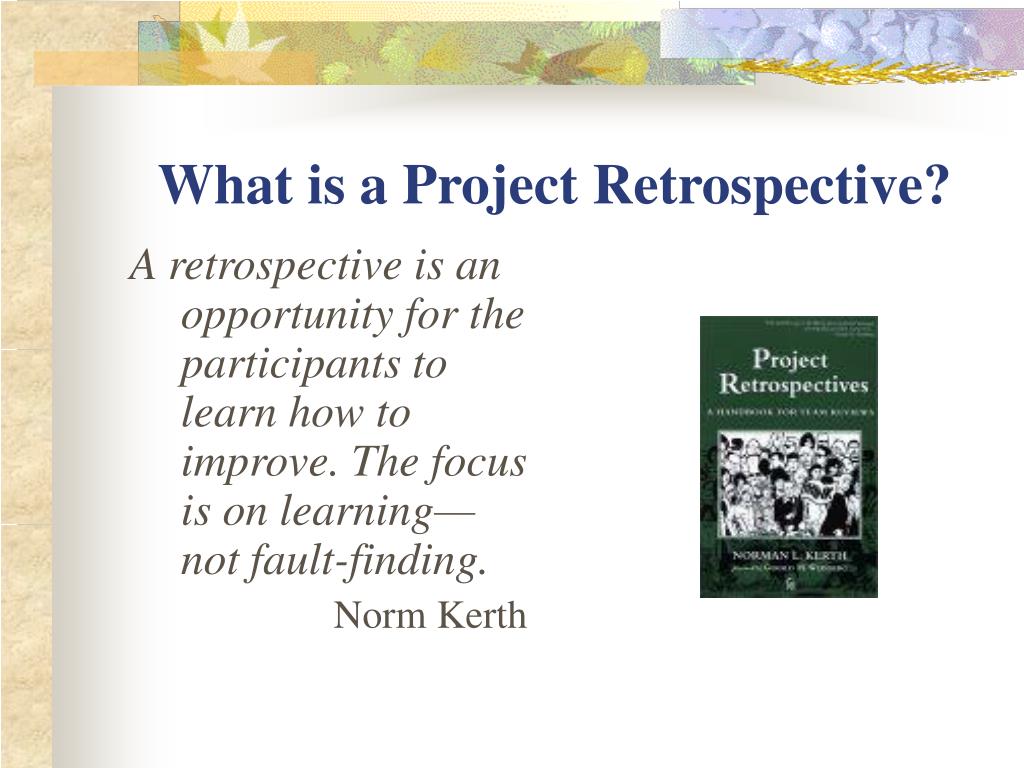


You are prioritizing growth and learning over pushing out a product and moving on to the next challenge. You are telling the team that you understand that perfection isn’t possible there is always something to learn from experience. When you engage in retrospectives, you are signalling to others that you take learning from experience seriously. Project retrospectives are a means to show your commitment to your team.
Project retrospective software#
Researchers have identified many benefits from software design and development teams engaging in project retrospectives (see the links at the bottom for references). You codify the lessons learned when you conduct retrospectives. We also risk losing this knowledge or failing to incorporate the lessons if we don’t engage in retrospectives. We learn something new about ourselves, our product and our team in every project. Your team would benefit greatly from properly planned and executed retrospectives. This also forces people to be wise with the time they have during the retrospective. This gives everyone ample time to discuss each of the broad themes we’ll cover later. I recommend 60 to 90 minutes for reflection if you have a team of 5 or 6 people. Retrospectives should not be a huge burden on your time and resources.Ideally, you would be proactively coaching your team throughout the project. Retrospectives are not an opportunity to lecture your team on what they could have done better.Retrospectives are not an excuse to spend an hour complaining (although it is important to let some venting happen during the session).Retrospectives do not replace communication or action taken to fix team or project issues at the time of occurrence.In order to fully benefit from retrospectives, you should keep in mind some limitations and guidelines: Project retrospectives are an important component of healthily functioning teams. (Image: Wikimedia) What Isn’t A Retrospective? Engaging in retrospectives helps to finely tune your team.
Project retrospective how to#
You can expect your team and each member to better understand how to improve their process. If you engage in retrospectives with these commitments, you can expect your team members to grow individually and as a group. Effective retrospectives require a commitment to maintain an open mind and open communication with your team, as well as a willingness to be vulnerable. The rewards of running effective retrospectives outweigh the costs. You will need to consider when to hold the retrospective you don’t want to pull members away from other work at critical times or to disrupt their productivity. You will need to budget expenses for time if you work with contractors on your team. Some costs are associated with retrospectives, particularly with getting your team together to work on something that will pull them away from their projects. Retrospectives do not require intense resources to plan or conduct. In a second article, I will present some lessons learned and researched-backed techniques that those who wish to engage in reflection can attempt to include in their routine.
Project retrospective professional#
I have also seen evidence of the effectiveness of structured reflection for both personal and professional growth. We’ll walk through post-project retrospectives in this first article. I see this in my design team colleagues as well. I have found post-project retrospectives to be one of the most effective ways to grow as a professional. I’ll show you a few approaches that you and your team can immediately incorporate into your practice.

Retrospectives and reflections do not have to be time-consuming. Retrospectives and reflections allow you to codify what you’ve learned from experience, to document mistakes and avoid future ones, and to increase your potential to grow in the future.Īdditionally, we can learn from our mistakes, identify what works well, and better understand ourselves through personal reflection. We should always look for opportunities to grow and improve.


 0 kommentar(er)
0 kommentar(er)
